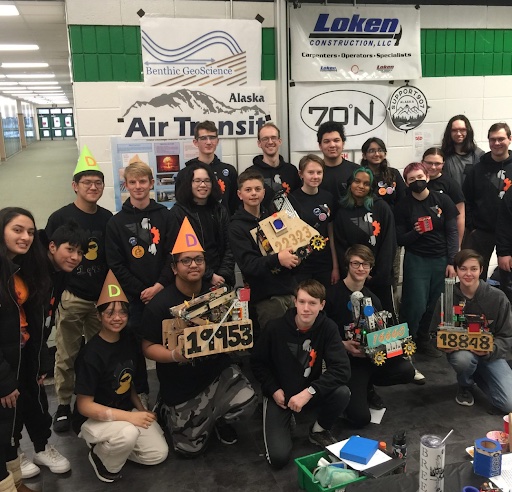Adopt-A-Dog Month
November 22, 2017
The U.S. is home to an estimated 14,000 animal shelters and pet rescue groups, who take in nearly eight million animals a year. In fact, homeless animals outnumber homeless humans five to one in the United States. To help counteract this epidemic, American Humane started National Adopt-A-Dog Month in 1981.
Every October, American Humane and similar organizations promote pet adoptions across the country. The mission of this campaign is to spread awareness of the needs of homeless animals and help promote adoptions.
Nessy Yamada, the Adoption Coordinator at the Alaska SPCA, stresses how animals in need can really benefit from finding forever homes. “A lot of people like to get purebreds and spend [over $2,000] on these purebreds when you can go to a shelter and spend $100 or less to get a loving animal who has been through a lot and needs an understanding person,” she said.
Yamada is in charge of finding these homes for dogs and cats in need. At the ASPCA, prospective families undergo a detailed application process, where Yamada steps in and determines if they are a right fit for certain animals. Yamada touched on how adoption can be transformative not only for pets but for the people that adopt them too. “Those animals just need a second chance… They deserve a loving home. I just think that’s super important that the right person comes in. Who knows, it could be someone who is really active and this dog has never seen a lake or gone hiking and it could just change their life,” she says.
“I think that more people should look towards adopting and rescuing rather than going to a breeder,” Yamada said. Not only are adoption fees significantly less than paying for a pet from a breeder, but most animals that come from shelters are already spayed, neutered, vaccinated and microchipped.
Many stray pets are products of unwanted litters from animals that weren’t spayed and neutered. Spaying and neutering animals dramatically reduces the number of stray animals that end up either on the streets on in shelters. Yamada explained that the ASPCA’s mission is to “get all strays off the street” and to provide these procedures to as many animals as possible. In addition to preventing unwanted pregnancies, spaying and neutering can decrease the chance of animals developing cancer or problems with aggression.
Yamada prided her organization for having many success stories from animals who found their forever homes. Elora Libal, 21, is one of these success stories. She adopted her Plott Hound-Labrador mix, Daisy, eight years ago. “Nobody in my family wanted a dog but I was adamant that we got a dog, because I always wanted one,” she says.
Libal devoted a lot researching different dogs online and soon found Daisy on Petfinder.com, and soon adopted her from the Anchorage ASPCA. Despite her family’s reluctance, Libal now considers Daisy as a part of her family. “I don’t think any of us were dog people until we got Daisy and now we’re totally dog people,” Libal joked.
People hoping to make a difference this October or adopt a pet in need can visit a local shelter for more information.







Jaidyn Bianchi • Dec 20, 2017 at 1:38 pm
Thank you for the tip on the cheap prices for a purebred!
Paola • Nov 30, 2017 at 11:38 am
I REALLY love dogs so reading this makes me glad that the word is being spread about the many strays we have around the country.
Audrey • Nov 29, 2017 at 9:42 am
This is a very motivating article. This makes me want to make a difference for the stray animals!